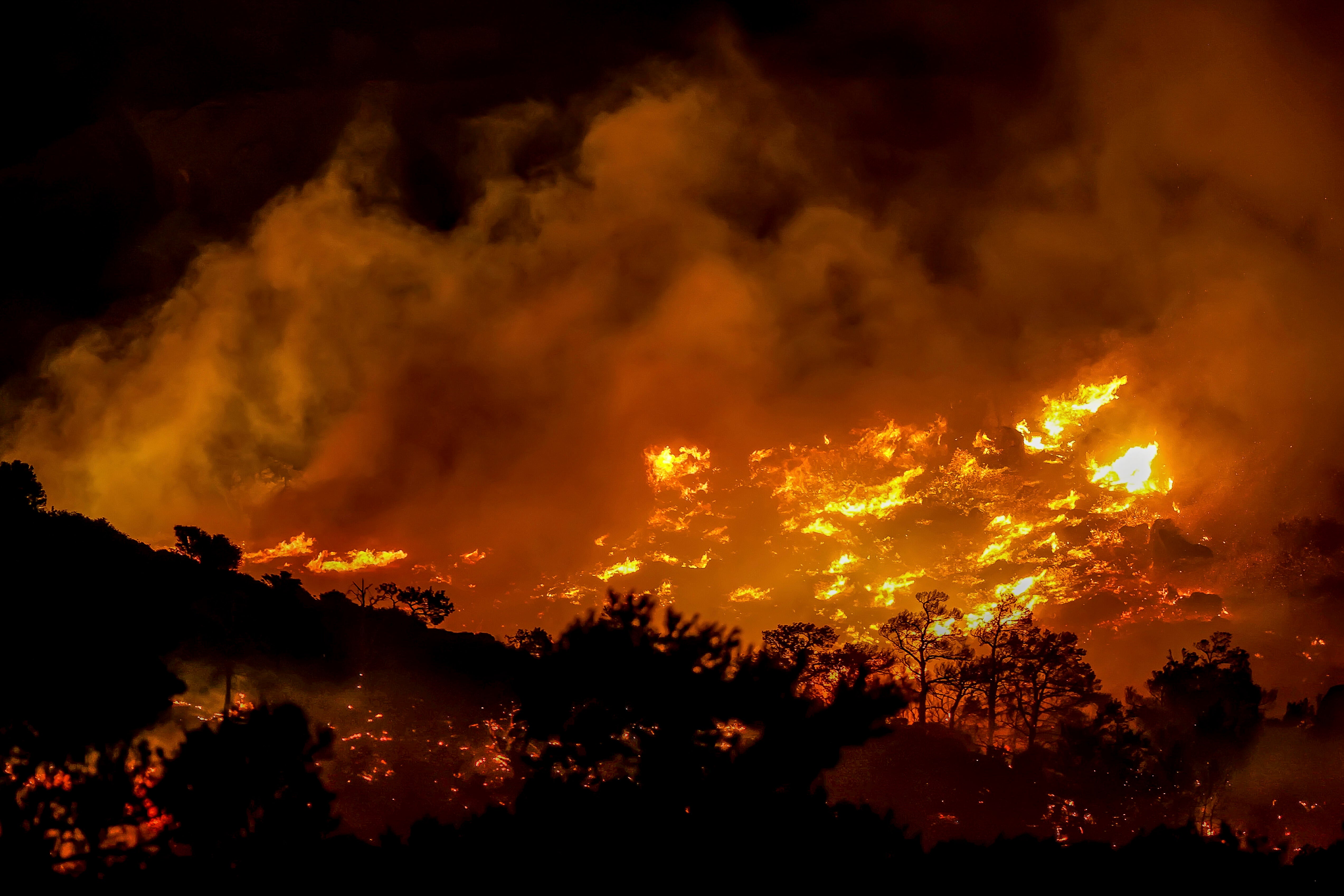
Source: cbsnews.com
Image content: The image shows firefighters battling a large wildfire in a scrubby, dry landscape. Flames and heavy smoke dominate the background as the crew in protective gear works with hoses to contain the blaze.
Summary
A severe, climate change–amplified heatwave sweeping Europe has driven temperatures to record levels, strained health systems, and ignited or intensified wildfires across multiple countries, including a major blaze on Greece’s island of Crete. Gale-force winds fanned the Crete fire, forcing thousands—many tourists—to evacuate by land and sea as homes and hotels were threatened. Health authorities across Europe issued alerts after heat-related deaths and surges in emergency visits, while power disruptions, crop damage, and additional fires were reported from Spain to Germany. Officials deployed significant firefighting resources in Greece, yet containment remained difficult amid hot, dry, and windy conditions, underscoring warnings that more frequent and intense heatwaves are becoming the region’s new normal.
Key Points
- Thousands evacuated in Crete as wind-driven wildfires threaten homes and hotels
- Europe-wide heatwave causes multiple deaths, hospital surges, and power disruptions
- High temperatures and drought conditions fuel fires in Greece, Spain, Portugal, Turkey, and Germany
- Authorities deploy aircraft and hundreds of firefighters, but containment hampered by gale-force winds
- Scientists link escalating heatwave frequency and intensity to climate change and urge stronger preparedness